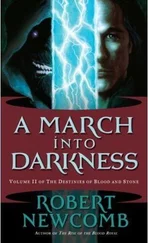Robert Pirsig - Lila. An Inquiry Into Morals
Здесь есть возможность читать онлайн «Robert Pirsig - Lila. An Inquiry Into Morals» весь текст электронной книги совершенно бесплатно (целиком полную версию без сокращений). В некоторых случаях можно слушать аудио, скачать через торрент в формате fb2 и присутствует краткое содержание. Жанр: Современная проза, на английском языке. Описание произведения, (предисловие) а так же отзывы посетителей доступны на портале библиотеки ЛибКат.
- Название:Lila. An Inquiry Into Morals
- Автор:
- Жанр:
- Год:неизвестен
- ISBN:нет данных
- Рейтинг книги:3 / 5. Голосов: 1
-
Избранное:Добавить в избранное
- Отзывы:
-
Ваша оценка:
- 60
- 1
- 2
- 3
- 4
- 5
Lila. An Inquiry Into Morals: краткое содержание, описание и аннотация
Предлагаем к чтению аннотацию, описание, краткое содержание или предисловие (зависит от того, что написал сам автор книги «Lila. An Inquiry Into Morals»). Если вы не нашли необходимую информацию о книге — напишите в комментариях, мы постараемся отыскать её.
Lila. An Inquiry Into Morals — читать онлайн бесплатно полную книгу (весь текст) целиком
Ниже представлен текст книги, разбитый по страницам. Система сохранения места последней прочитанной страницы, позволяет с удобством читать онлайн бесплатно книгу «Lila. An Inquiry Into Morals», без необходимости каждый раз заново искать на чём Вы остановились. Поставьте закладку, и сможете в любой момент перейти на страницу, на которой закончили чтение.
Интервал:
Закладка:
That was all so long ago… Selim… Selim… what was that about? A story his mother had read to him. Selim the fisherman and Selim the baker and a magic island that they just barely escaped from before it all sank into the sea. It had been connected with this place in his memory.
So strange. Other than a barge and one other sailboat way downstream, there was still nothing on the river. Far to the south, among all the clutter of buildings on the horizon, he could see the Statue of Liberty.
Strange how he could remember the old Mauritania docks from that childhood voyage but not the Statue of Liberty.
Once on a later visit to New York he had joined a crowd of other tourists and climbed up inside the Statue of Liberty. He remembered it was all greenish copper and old looking, supported with riveted girders like an old Victorian bridge. The iron staircase going up got thinner and smaller and thinner and smaller and the line of people going up kept getting slower and slower and suddenly he’d gotten a huge wave of claustrophobia. There was no way he could get out of this procession! In front of him was a very fat lady who acted like the climb was too much for her. She looked like she might collapse any minute. He could envision the whole procession collapsing beneath her like a row of dominoes, with himself in it, with no hope but to crash with the rest of them. He’d wondered if he’d have the strength to hold her there if she collapsed… Trapped and going crazy with claustrophobia underneath a fat lady inside the Statue of Liberty. What a great allegorical theme, he’d thought later, for a story about America.
Phædrus saw the deck was still a mess of lines that needed to be put away. He tied off the rudder, went forward, gathered up a dock line, brought it back to the cockpit and then, while steering back on course again, coiled the line and stowed it into the lazarette; then tied off the rudder again and repeated the process until he had all four lines and the electrical power cable stowed and the fenders brought inboard. By the time he was done downtown Manhattan was approaching.
There were rather pleasant-looking Victorian houses over on the Jersey side. Some high-rises, but surprisingly few. There was some sort of a cathedral up high on the shore and a road going up the bluffs. He could see how steep the bluffs are. That might be why there’s so little development there compared to the other side of the river.
As the statue drew nearer Phædrus could see the old Blake School torch still held on high; a Victorian statue but still impressive, particularly from the water like this. It’s the size that does it, mainly. And the location. If she were just an ordinary park-statue most of that inspiration would be gone.
There was more water traffic now. Over by Governors Island some tugs were moving a big ship toward the East River. He could see what was probably a Staten Island ferry boat in the distance. Nearer, a river tour was coming in his direction.
He wondered why it was so heeled-over, then realized it was because all the passengers were on the Manhattan side of the boat, watching the skyline that loomed up above everything.
What a skyline! The clouds were reflected in the glass of some of the tallest buildings. Rhapsody in Blue. For the moment the towers of the World Trade Center seemed to have won the race upward but those other skyscrapers seemed not to know it. All of them together were no longer just buildings or part of a city, but something else people didn’t know they could be. Some kind of energy and power that wasn’t anything planned seemed to constantly surprise everyone at how great it all was. No one had done this. It had just done itself. The Giant was its own creation.
The Verrazano bridge was drawing closer and closer. Underneath it he could see a line that might be the far side of the lower bay. This was the last bridge. The last one!
As Phædrus approached the bridge he felt the beginning of a deep, periodic swell. It was a kind of a trapeze-like feeling. But slow. Very slow. It lifted and lowered the boat. Then it lifted it and lowered it again. Then again. It was the ocean.
Suddenly he realized he didn’t know where he was going. He tied off the rudder again and went down below and got a pile of charts from the chart drawer — still no sign of Lila — and went back up on deck. He paged through the charts until he found one that said New York Harbor. On the back side of the chart was the Lower Bay, speckled with buoys that marked channels for ships. At the bottom of the Lower Bay was Sandy Hook, and in the middle of Sandy Hook was Horseshoe Cove. That had to be the cove Rigel had told him about.
The chart showed about ten nautical miles from the bridge to the cove. There were so many buoys in the bay it was hard to tell which was which, but the chart said it didn’t matter, there was no way he could go aground.
In fact he was safer outside the channel where the big ships couldn’t go.
As the bridge moved farther and farther behind he noticed the engine sounded a little odd, and he saw the temperature gauge was up near the red range. He throttled down to just above an idle.
It was probably some debris in the water that had gotten into the engine’s cooling water intake. That had happened before. The trouble was the intake was so far below the water line and the curve of the hull was so great he couldn’t see the debris or get it with a boat hook. He had to get out into the dinghy and try to pull it off. Now he couldn’t do that because the ocean surge coming into the bay would clunk the dinghy all over the place. He’d have to wait until he got into the cove.
A fresh breeze seemed to be building from the southwest New Jersey shore. He might just as well sail the rest of the way.
He shut off the engine and for a moment enjoyed the silence. There was just the faint sound of the breeze and the sound of the waves against the hull, getting quieter as the boat slowed. With what momentum was left he headed the boat into the wind and went forward to the mast to put up the main sail.
The roll of the boat from the surge made it tricky to keep his balance, but once the sail was up and the boat came off the wind, it steadied on a slight heel, picked up speed, and he suddenly felt very good. From the cockpit he put her on course, rolled out the jib and the boat speeded up some more. He was feeling some of the old sea fever again. This was the first real open water since Lake Ontario and the surge was bringing it back.
To the east, there it was out there, the landless horizon. Some sort of ship way off in the distance, apparently heading this way. No problem. He would just keep the sailboat outside the channel.
Old Pancho would be smiling now.
This sea fever was like malaria. It disappeared for long periods, sometimes years, and then suddenly was back again, like now, in a wave that was like the surge itself.
He remembered long ago being taken by a song called The Sloop John B., that had an unusual speed-up and slow-down rhythm. He didn’t know why he liked it so much until one day it dawned on him that the speed-up and slow-down was the same as the surge of the sea. It was a running surge where the wind and sea are behind you and the boat rushes forward and rises as each wave passes underneath and then descends and hesitates as the wave rolls on ahead.
That motion never made him uncomfortable, probably because he loved it so much. It was all mixed up with the sea fever.
He remembered the day the fever started, Christmas Day, after his sixth birthday, when his parents had bought him the most expensive globe they could afford, heavy and on a hardwood stand, and he had turned it on its axis around and around. From it he’d learned the shapes and names of all the continents and most of the countries and seas of the world: Arabia, Africa, South America, India, Australia, Spain and the Mediterranean, the Black Sea, the Caspian Sea. He was overwhelmed with the idea that the whole city he lived in was just one tiny dot on this globe, and that most of this globe was blue. If you wanted to really see the world you couldn’t go there except over all that blue.
Читать дальшеИнтервал:
Закладка:
Похожие книги на «Lila. An Inquiry Into Morals»
Представляем Вашему вниманию похожие книги на «Lila. An Inquiry Into Morals» списком для выбора. Мы отобрали схожую по названию и смыслу литературу в надежде предоставить читателям больше вариантов отыскать новые, интересные, ещё непрочитанные произведения.
Обсуждение, отзывы о книге «Lila. An Inquiry Into Morals» и просто собственные мнения читателей. Оставьте ваши комментарии, напишите, что Вы думаете о произведении, его смысле или главных героях. Укажите что конкретно понравилось, а что нет, и почему Вы так считаете.











